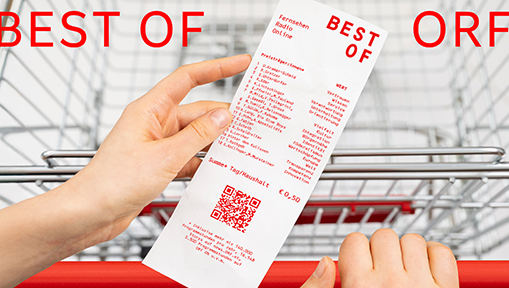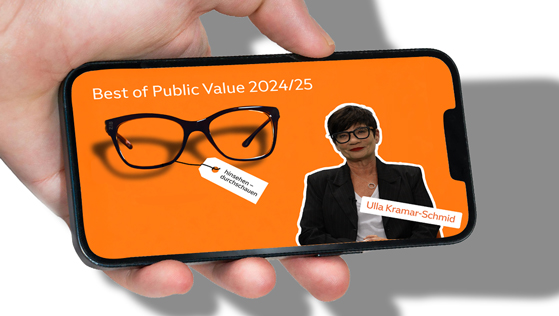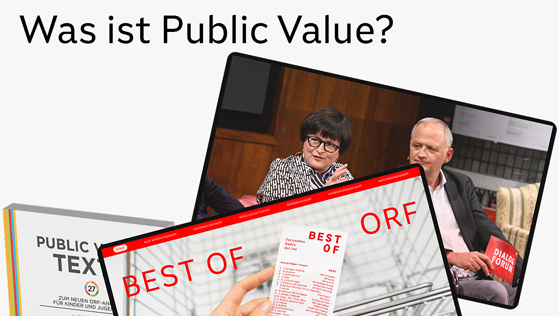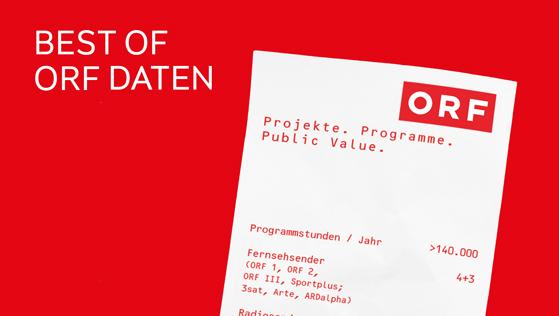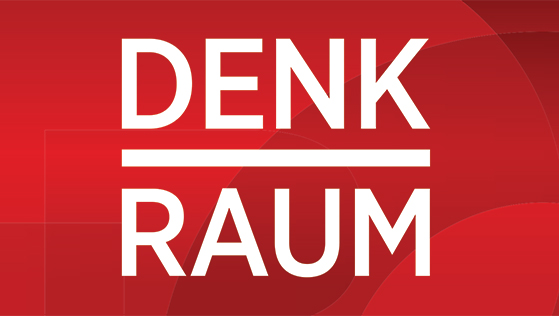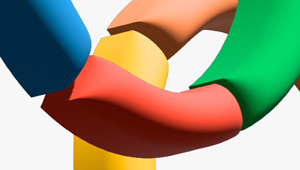Hier finden Sie Neuigkeiten und Informationen aus Österreich, Europa und der Welt zu aktuellen Entwicklungen unter anderem in den Bereichen »Public Value«, »öffentlich-rechtliche Medien«, sowie »Qualitätsjournalismus«.
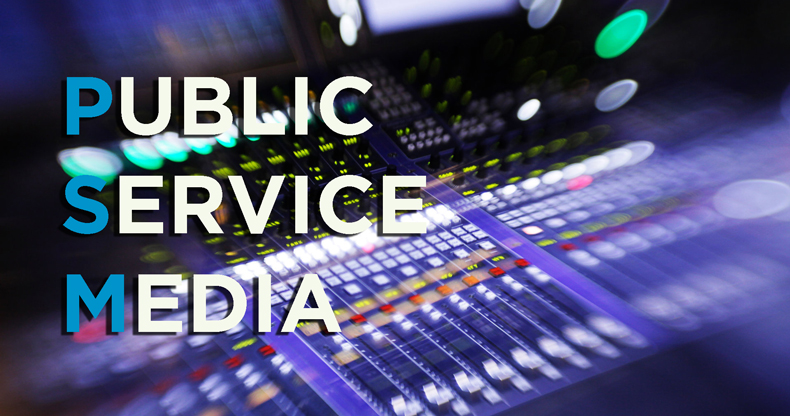
A new report, published by the European Audiovisual Observatory, provides a brand new IRIS Special analysis of the current state of regional and local broadcasting in Europe. It offers an in-depth insight into the regional audiovisual media in Europe in three sections: The first delivers a broad overview of current national developments and reforms in recent years; the second digs deeper into individual national case studies of regional and local media – their distinctive features and regulatory approaches; and the third looks into the future of regional and local broadcasting.
The report also emphasizes the importance of regional media as fora for public debate, communication channels for regional identity as well as for regional news not covered in national reporting. It therefore also points out the need to preserve the existing local media outlets in every European country. In the current hostile economic context with cutbacks causing closures of regional channels throughout Europe, this will ambitious demand will certainly prove itself to be a challenging one for the European media landscape.
A summary of the report can be found
here.
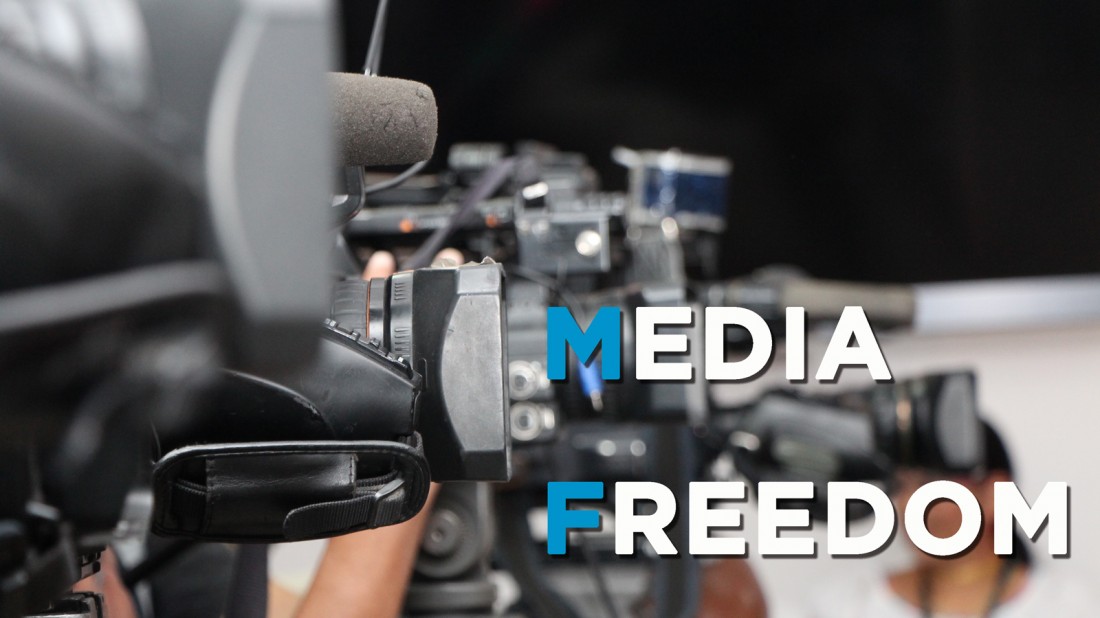
Auf der Internet-Plattform “European Journalism Observatory“ liefert Autorin Marlis Prinzing eine aktuelle Bestandsaufnahme zur Pressefreiheit in Europa. Obwohl Europas Journalist/innen im weltweiten Vergleich so frei und unabhängig arbeiten können wie sonst nur in den USA, Kanada, Australien und Neuseeland, betont die Autorin, dass die Pressefreiheit auch hier ein angreifbares Recht bleibt.
Laut dem umfangreichen Bericht wird die Pressefreiheit in Teilen Europas auf unterschiedliche Weise gefährdet. Insbesondere drei Ursachen lassen sich laut der Autorin hervorheben: erstens Druck durch staatliche Übergriffe wie Zensur, Strafverfahren oder Zwangsübernahmen; zweitens wirtschaftlicher Druck etwa durch Medienkonzentration und Werbeboykotte; und drittens Druck als Folge von wachsenden Ängsten in der Bevölkerung – hervorgerufen sowohl durch die Flüchtlingskrise als auch durch Terroranschläge.
Problematisch ist die Situation beispielsweise in Polen und Ungarn, wo Prinzing die allgemeine Pressefreiheit durch legislative Maßnahmen der jeweiligen Regierungen – z.B. durch ein restriktives Mediengesetz und Personalveränderungen innerhalb der öffentlich-rechtlichen Medien – gefährdet sieht. In Frankreich, Italien und besonders stark in Griechenland ist die Pressefreiheit zudem durch die Tatsache, dass viele Medien Großkonzernen mit Geschäftsinteressen in diversen Branchen gehören, eingeschränkt. Und: Auch in der Türkei gibt es massive Probleme; Regierung und Justiz gehen dort massiv gegen kritische Berichterstattung inländischer und ausländischer Medien vor.
Den gesamten Bericht zur Pressefreiheit in Europa finden Sie
hier.
Mehr zum Thema auch in
"TEXTE 17: Why independence matters".
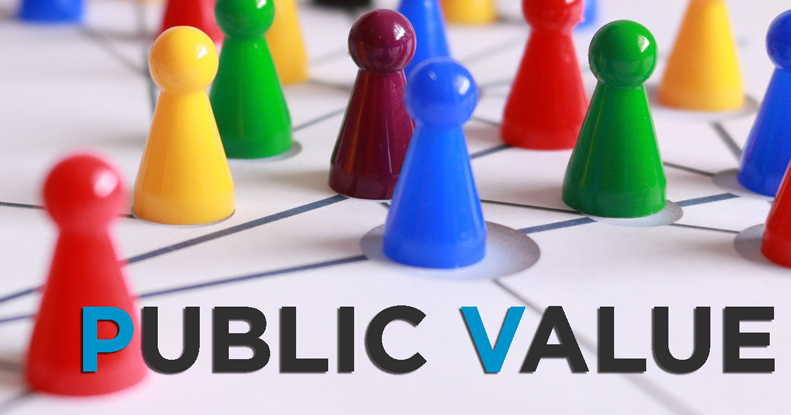
Welche gesellschaftliche Verantwortung haben Unternehmen? Den Grundstein für den Diskurs um die sogenannte „Corporate Social Responsibility“ (CSR) bildet das viel beachtete Pyramiden-Modell von Archie B. Carrol, das dieser vor rund 40 Jahren vorlegte. Carrol unterteilte die Verantwortung von Unternehmen dabei in vier Ebenen beginnend mit der ökonomischen gefolgt von der rechtlichen, ethischen und schließlich der philanthropischen.
Nach vier Jahrzehnten schlagen die beiden Wissenschafter Prof. Dr. Timo Meynhardt (HHL Leipzig Graduate School of Management und Universität St. Gallen) und Prof. em. Dr. Peter Gomez (Universität St. Gallen) in ihrem kürzlich veröffentlichten Artikel "Building Blocks for Alternative Four-Dimensional Pyramids of Corporate Social Responsibilities" deutliche Korrekturen am Pyramiden-Modell von Carroll vor. Ihr alternatives CRS-Modell baut auf dem Public-Value-Ansatz auf, erkennt also den Gemeinwohlgedanken als wesentliches Element für die Führung von Unternehmen an. Somit verschiebt sich der Fokus des CSR-Ansatzes von der ökonomischen Ausrichtung, erstmals klar auf die gesellschaftliche Wertschöpfung. "Mit unserer Neuausrichtung präsentieren wir einen besser begründeten und vor allem für die Praxis flexibleren Ansatz in der CSR-Forschung“, ist Meynhardt überzeugt.
[Mehr Infos]
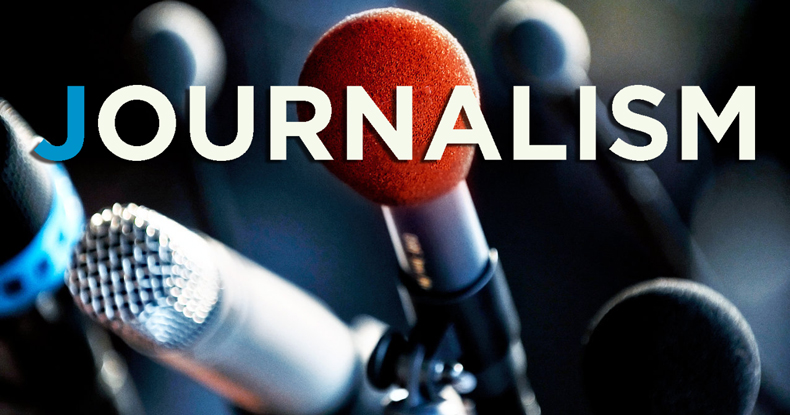
In his blog post “Six Ways Editors Can Innovate (And Do Their Day Job)”, author Ville Seuri presents tips and techniques that allow news organizations to implement innovation whilst successfully running the business and meeting deadlines. In regards to combining the day-to-day job of journalism with the ability to lead innovation, Seuri comes up with a list of six major lessons – “think big”, “know your strength and your audience”, “prioritize”, “respect autonomy”, “take an interest in your staffers´ progress” and “simplify, communicate, listen, repeat” – that he believes one needs to follow in order to run a both successful and innovative newsroom.
In his paper “How to Lead Innovation and Still Keep Your Newsroom Working”, the author goes into more detail about the process of implementing change and innovation in such a difficult, stressful setting. He also emphasizes the importance of good communication: "Being innovative and effective at the same time does not work without having clear goals, and even the clearest of goals don’t work if they are not communicated effectively. Moreover, it is not enough that vertical communication works, newsroom managers will have to make sure communication also functions horizontally”, he states.
[See article in English]
[Deutsche Version des Artikels]

The BBC has been closely monitoring the Moldavian media landscape for years and is now reporting a dip in the country´s media freedom after a significant improvement in 2009-14. The British broadcaster cites concentrated media ownership as the main reason for the decline. Rival oligarchs frequently use TV channels under their control to attack each other. At the same time, a "media war" between Moldova and the separatist Dniester region continues, with Moldovan media blocked in the rebel region and vice versa. Television remains the country´s most popular medium, with the influence of the web growing and that of the press declining.
[More information]

Das ZDF plant seine Kultur-News zukünftig online zu bündeln. Der Sender arbeitet momentan am Aufbau einer neuen Online-Plattform mit dem Schwerpunkt Kultur; verkündet wurden die neuen Pläne auf einer Produzentenkonferenz von Chefredakteur Peter Frey und Programmdirektor Norbert Himmler. Genaue Details zu dem Projekt wurden von den ZDF-Verantwortlichen jedoch noch nicht verraten.
Laut dem Welt-Blog “Medien morgen“ soll mit dem Digitalangebot das Ziel verfolgt werden, alle Kulturinhalte des Senders – also die des Hauptprogramms und die der Digitalkanäle - an einem Ort zu bündeln und damit dem Publikum leichter zugänglich zu machen. Die noch namenlose Plattform könnte auf diese Weise den TV-Sender ZDFkultur ersetzen, der am 30.September abgeschaltet wird.
[Mehr Informationen]

In the run up to the Croatian parliamentary elections in September, the EBU has reiterated the importance of independence for its Croatian Member HRT, the country´s only public service broadcaster. The South East Europe Media Organisation (SEEMO) and representatives from the EBU have started an international media freedom mission for Croatia. According to the EBU, the key challenge to media freedom and media independence in Croatia is to restrict government interference with the public service broadcaster. The EBU together with the SEEMO urge the Croatian Government to protect the independence of HRT. According to a report published by SEEMO, recent mass restructuring and programming changes within HRT indicate an attempt by the outgoing government to assert control over HRT.
[More information]

On August 4th a campaign concerned with the protection of journalists has been launched by the international organization Reporters without Borders. According to the European Federation of Journalists´ (EFJ) blog, the EFJ has joined an international alliance of human-rights organizations, journalist associations and media representatives to protect foreign journalists from surveillance by the German Federal Intelligence Agency (Bundesnachrichtendienst – BND).
The campaign aims to include a clause in the revised BND law to protect journalists. The EFJ blog post states that the signatories of the appeal consider the global mass surveillance by the BND to be a violation of human rights. Furthermore, the signatories of the appeal regard the surveillance of foreign journalists in particular as a serious encroachment on press freedom worldwide.
More information about the petition
[here]

Slow News, the newest trend in the journalism industry, aims to help the public understand past events. According to the European Journalism Observation (EJO) the aim of this new trend is to revisit stories, analyse and evaluate the facts in a non-partisan way. Slow News tells the public how the story ended and supports them to understand the issue. Susann Eberlein describes in her article in the EFO platform that the first Slow News concept magazine was published by the British journalist Rob Orchard, the Delayed Gratification. Susann Eberlein argues that breaking news from across the world are available twenty four seven, as a live stream of information; however, not all of the displayed and transmitted content is accurate, nor is most of it put into a context that the public can understand the implications. The new journalism trend makes slowness and accuracy a virtue. According to the article Slow News focuses on being the last reporter on the scene and telling the story with the benefit of hindsight.
More information:
EJO: Is slow news better news?

According to a recent study by the European Broadcasting Union (EBU), a well-funded and strong public-service media (PSM) goes hand in hand with sighs of a healthy democracy. The research study highlights that in country with a strong PSM there is a high degree of press freedom, better control of corruption, higher voter turnouts and last but not leas lower levels of right-wing extremism. According to Roberto Suárez Candel, who conducted the research study, this research is particularly interesting since current public debates focus on the issue of low participation in elections, corruption and rise of far right politics across Europe. The research study shows how string public TV and radio is connected to a greater democracy.
More information:
EBU: EBU research shows strong Public Service Media contributes to a healthy democracy
Schweiz: Neue Studie zeigt: Starke Service-public-Medien stärken die Demokratie

In course of its charter review, the BBC is introducing a TV licence for the BBC iPlayer. The BBC is not the first public-service broadcaster who charges or is planning to charge their audience for using online catch-up services. Public-service broadcasters in Germany and Switzerland have already introduced this concept a while ago. According to a recent article in the Guardian, the BBC has lost over a 150m pounds annually by not charging for their online service. In the article Jasper Jackson, a Guardian journalist, mentions that nowadays a significant percentage of the BBC audience don’t use the broadcasters` services on the traditional channels (TV and radio), hence do not pay for the BBC´s services. “How will the BBC detect people watching iPlayer without a licence?”, is the question Jasper Jackson tries to answer in his article. In Germany citizens don’t pay a TV licence anymore, instead all citizens are charged a household excise tax. The difference between household excise tax and traditional TV licence is that the fee is instead of being linked to a certain public-service channel (TV or radio), the household excise tax is linked to the possibility of a household accessing PSB content and services.
More information:
The Guardian: How woll the BBC detect people watching iPlayer without licence
The Guardien: BBC iPlayer users will have to pay TV licence fee from 1 September

Jon Bernsteins article “Facebook’s dominance in journalism could be bad news for us all!” in the Guardian discusses the benefits and disadvantages of social platforms hosting journalistic content. The article claims that the move from social sharing to social distribution tethers readers to gated, algorithmically defined content that chimes with the publics own world view. According to the article, in order to fight the tech giants like Facebook and Google, all media organisations have to form a network. Jon Bernstein claims that this current trend of social media publishing journalistic content could lead to loss of control and financial damage. Furthermore, publisher obsession with algorithm changes and a willingness to give away control of content are evidence of this trend.
More information
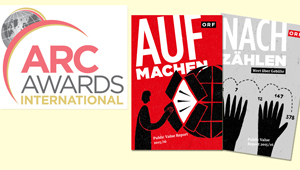
Über eine neuerliche Auszeichnung für den »Public-Value-Bericht« können sich der ORF und sein Public-Value-Kompetenzzentrum freuen: Nachdem der »Public-Value-Bericht« des ORF 2014 beim ARC in New York, dem weltweiten Wettbewerb der Jahresberichte, sowie den Fox Awards insgesamt dreimal mit Gold ausgezeichnet worden war, und für die Ausgabe 2015 eine goldene Ehrung bei ICMA (International Creative Media Award) folgte, gab es heuer für die Ausgabe »AUFMACHEN – Public Value Report 2015/16« in der Kategorie der nichtenglischsprachigen CSR-Berichte Silber beim weltweiten Wettbewerb der Jahresberichte, den ARC-Award in New York.
Grundlage der Auszeichnung im Rahmen der sogenannten ARC-Awards sind Leistungen in Bewertungskategorien wie Klarheit und Nachvollziehbarkeit der Information, Kreativität des Layouts oder Vermittlung der Unternehmensphilosophie und -kultur. Insgesamt waren mehrere hundert Berichte aus drei Kontinenten eingereicht worden; die Würdigung des von der österreichischen Agentur Rosebud, Inc. gemeinsam mit dem Public-Value-Kompetenzzentrum des ORF gestalteten Reports erfolgte in der Kategorie „Non-English Annual Reports: CSR – Corporate Social Responsibility“.
Klaus Unterberger: »Der ‚Public-Value-Report‘ macht die Leistungen des ORF für die Gesellschaft, für die einzelnen Mediennutzer, für Österreich nachvollziehbar. Es freut mich, dass diese Arbeit der ORF-Qualitätssicherung auch international Anerkennung findet.«
ARC-Award bereits zum 30. Mal vergeben
Der International ARC-Award wird heuer zum 30. Mal vergeben. Er wird von der in New York ansässigen unabhängigen Award-Organisation MerComm ausgeschrieben, im Rahmen einer Gala am 20. Oktober in New York verliehen und gilt als der weltweit größte und bedeutendste Wettbewerb für Geschäftsberichte. Eine internationale Experten- und Expertinnen-Jury aus den Bereichen Investor Relations, Text/Redaktion, Agentur, Design und Fotografie bewertet dort die eingereichten Geschäftsberichte in insgesamt 26 Kategorien.
(APA OTS 19.08.2016)
[Zum »Public-Value-Bericht«]

According to the Guardian, the UK media industry continues to struggle with gender equality. In the article “Five strategies for creating gender equality in the media”, highlights crucial strategies to make the media sector more inclusive. According to the article a research by non-profit organisation Catalyst found that companies with a high number of women in senior leadership roles outperform those with lower rates of women; in other words, gender equality benefits the business. According to the Guardian, including news about and for women, assuring strong commitment from the management department and assuring women occupy roles in the senior position, contributes to make the industry more inclusive.
On the other hand in Austria, according to the annual gender equality report, ORF reports a static increase of female employees. The gender equality report highlights that in 2015 43,3% of the ORF employees were female, which demonstrates the great importance ORF lays on gender equality. With company internal formulated strategies and tactics ORF attempts to overcome the issue of gender inequality.
[See full story in The Guardian]
[ORF Gleichstellungsplan 2016]

Dunja Mijatovic, the OSCE Representative on Freedom of the Media, indicates that the mass cancellation of broadcasting licenses, criminal investigations of hundreds of journalists and blocked websites are severe challenges to freedom of expression and media in Turkey. According to the press release of the OSCE, Dunja Mijatović mentions that democratically elected governments must be safeguarded however in turn have to protect media freedom and additionally support the role journalists play in ensuring and strengthening democracies. The representative emphasizes on the fact that due to the difficult times in Turkey, the authorities need to ensure media freedom offline and online in line with their international commitments.
[Full Story here]

Marty Rudoy, Blogger from the Huffingtonpost, claims that media encourages terrorists by taking their words without question. In the blog post Marty Rudoy mentions that terrorists use the media to communicate with their followers, recruits and potential targets. According to the blog post terrorist actions have limited consequences if they cannot get their message out. Marty Rudoy mentions that terrorism is a communication strategy of choice. According to the blog article in the Huffingtonpost Western media encourages terrorists through its choice of coverage and the used language. The blog article discusses the language Western media uses to cover terrorist attacks.
[Full story here]

In einem aktuellen Artikel vergleicht Heise Online die Berichterstattung in den Sozialen Medien mit jener im Fernsehen und kommt dabei zu dem Schluss, dass Fernsehsender im Bereich der Schnelligkeit kaum mit den sozialen Medien konkurrieren können. "Die sozialen Medien sind natürlicher schneller. Auch CNN kann nicht mit Facebook Live mithalten", bestätigt etwa der Kommunikationswissenschaftler Julius Reimer vom Hans-Bredow-Institut für Medienforschung in Hamburg. Dennoch sieht Kai Gniffke, Erster Chefredakteur von ARD-aktuell, in einem Interview mit der Frankfurter Allgemeinen Zeitung keine Kapitulation der traditionellen Medien vor den sozialen Netzwerken - denn „Schnelligkeit ist eben nicht alles“.
Im Konkurrenzkampf mit den sozialen Medien stellt für Gniffke die Beschleunigung der Informationen nicht die größte Bedrohung für die traditionellen Medien dar. „Die Herausforderung liegt eher in der Masse von Informationen, die mit Handy-Videos von Internetnutzern dazugekommen sei“, glaubt er. Medienforscher Reimer sieht hier ebenfalls ein Problem: In sozialen Netzwerken verbreiteten sich Gerüchte genauso schnell wie Fakten, das gilt auch für falsche Videobilder. Im Gegensatz dazu müssen die Redaktionen Informationen und Videomaterial erst sichten, verifizieren und einordnen, sagte Reimer. Sein Credo: Mehr zu bringen als nur die Bilder braucht etwas Zeit, schafft dafür aber mehr Authentizität.
[Zum Artikel]

The BBC Media Action has published a new research report regarding refugees and their communication requirements. According to the report, since 2015 more than a million women, men and children have undertaken journey to reach European countries, using unofficial migration routes across the Mediterranean Sea and south-east Europe. The report highlights that these people show diversity in the aspects of nationalities, languages, social status, levels of literary and access to technology. According to the report these people have one common aspect- they require information to make decisions about their next step, in order to remain safe and meet their minimum needs. The study shows a snapshot of refugees’ experiences about communication and information at different points on their journey. The BBC Media Action study found that refugees need to know: whether borders were open, what was going to happen next, and what is the asylum process? The report highlights that refugees need to have a focal point in camps, where someone, who can speak their language, can give them legal advice and provide them information about the current situation.
[See full story here]
Check out
[TEXTE 16] for more interesting stories on this topic.

The surveillance amendments in a new law present a threat to media freedom. OSCE representative on freedom of the media Dunja Mijatović asks Bundestag to reconsider the bill. “Increasing surveillance capabilities of journalists is a clear threat to media freedom,” Mijatović said. “This draft law runs counter to the very core of fundamental freedoms such as media freedom and freedom of expression.”
[See full story here]

The Public Accounts Committee publishes reports which evaluate BBC’s critical projects. The report highlights that the government has a key role in oversight on behalf of license fee payers. According to the Parliament.org.uk since the Digital Media Initiative project got cancelled in 2013, and led to a cost of nearly 100 million pounds from the fee payers, the BBC has strengthened its oversight of and reporting on critical projects. “The BBC is subjecting its critical projects to more effective scrutiny, underpinned by more frequent and timely reporting to the Executive and the BBC Trust”, mentions the Parliament.org.uk.
Additionally, the report highlights that the BBC has to ensure a robust process, which means has to be clear at an early stage about what projects will contribute to improve services for the audience, in order to encourage openness and transparency when problems arise, and to guarantee there is not scope for confusion over who is accountable for delivering each project.
[See full story here]
 A new report, published by the European Audiovisual Observatory, provides a brand new IRIS Special analysis of the current state of regional and local broadcasting in Europe. It offers an in-depth insight into the regional audiovisual media in Europe in three sections: The first delivers a broad overview of current national developments and reforms in recent years; the second digs deeper into individual national case studies of regional and local media – their distinctive features and regulatory approaches; and the third looks into the future of regional and local broadcasting.
A new report, published by the European Audiovisual Observatory, provides a brand new IRIS Special analysis of the current state of regional and local broadcasting in Europe. It offers an in-depth insight into the regional audiovisual media in Europe in three sections: The first delivers a broad overview of current national developments and reforms in recent years; the second digs deeper into individual national case studies of regional and local media – their distinctive features and regulatory approaches; and the third looks into the future of regional and local broadcasting. Auf der Internet-Plattform “European Journalism Observatory“ liefert Autorin Marlis Prinzing eine aktuelle Bestandsaufnahme zur Pressefreiheit in Europa. Obwohl Europas Journalist/innen im weltweiten Vergleich so frei und unabhängig arbeiten können wie sonst nur in den USA, Kanada, Australien und Neuseeland, betont die Autorin, dass die Pressefreiheit auch hier ein angreifbares Recht bleibt.
Auf der Internet-Plattform “European Journalism Observatory“ liefert Autorin Marlis Prinzing eine aktuelle Bestandsaufnahme zur Pressefreiheit in Europa. Obwohl Europas Journalist/innen im weltweiten Vergleich so frei und unabhängig arbeiten können wie sonst nur in den USA, Kanada, Australien und Neuseeland, betont die Autorin, dass die Pressefreiheit auch hier ein angreifbares Recht bleibt. Welche gesellschaftliche Verantwortung haben Unternehmen? Den Grundstein für den Diskurs um die sogenannte „Corporate Social Responsibility“ (CSR) bildet das viel beachtete Pyramiden-Modell von Archie B. Carrol, das dieser vor rund 40 Jahren vorlegte. Carrol unterteilte die Verantwortung von Unternehmen dabei in vier Ebenen beginnend mit der ökonomischen gefolgt von der rechtlichen, ethischen und schließlich der philanthropischen.
Welche gesellschaftliche Verantwortung haben Unternehmen? Den Grundstein für den Diskurs um die sogenannte „Corporate Social Responsibility“ (CSR) bildet das viel beachtete Pyramiden-Modell von Archie B. Carrol, das dieser vor rund 40 Jahren vorlegte. Carrol unterteilte die Verantwortung von Unternehmen dabei in vier Ebenen beginnend mit der ökonomischen gefolgt von der rechtlichen, ethischen und schließlich der philanthropischen. In his blog post “Six Ways Editors Can Innovate (And Do Their Day Job)”, author Ville Seuri presents tips and techniques that allow news organizations to implement innovation whilst successfully running the business and meeting deadlines. In regards to combining the day-to-day job of journalism with the ability to lead innovation, Seuri comes up with a list of six major lessons – “think big”, “know your strength and your audience”, “prioritize”, “respect autonomy”, “take an interest in your staffers´ progress” and “simplify, communicate, listen, repeat” – that he believes one needs to follow in order to run a both successful and innovative newsroom.
In his blog post “Six Ways Editors Can Innovate (And Do Their Day Job)”, author Ville Seuri presents tips and techniques that allow news organizations to implement innovation whilst successfully running the business and meeting deadlines. In regards to combining the day-to-day job of journalism with the ability to lead innovation, Seuri comes up with a list of six major lessons – “think big”, “know your strength and your audience”, “prioritize”, “respect autonomy”, “take an interest in your staffers´ progress” and “simplify, communicate, listen, repeat” – that he believes one needs to follow in order to run a both successful and innovative newsroom. The BBC has been closely monitoring the Moldavian media landscape for years and is now reporting a dip in the country´s media freedom after a significant improvement in 2009-14. The British broadcaster cites concentrated media ownership as the main reason for the decline. Rival oligarchs frequently use TV channels under their control to attack each other. At the same time, a "media war" between Moldova and the separatist Dniester region continues, with Moldovan media blocked in the rebel region and vice versa. Television remains the country´s most popular medium, with the influence of the web growing and that of the press declining.
The BBC has been closely monitoring the Moldavian media landscape for years and is now reporting a dip in the country´s media freedom after a significant improvement in 2009-14. The British broadcaster cites concentrated media ownership as the main reason for the decline. Rival oligarchs frequently use TV channels under their control to attack each other. At the same time, a "media war" between Moldova and the separatist Dniester region continues, with Moldovan media blocked in the rebel region and vice versa. Television remains the country´s most popular medium, with the influence of the web growing and that of the press declining. Das ZDF plant seine Kultur-News zukünftig online zu bündeln. Der Sender arbeitet momentan am Aufbau einer neuen Online-Plattform mit dem Schwerpunkt Kultur; verkündet wurden die neuen Pläne auf einer Produzentenkonferenz von Chefredakteur Peter Frey und Programmdirektor Norbert Himmler. Genaue Details zu dem Projekt wurden von den ZDF-Verantwortlichen jedoch noch nicht verraten.
Das ZDF plant seine Kultur-News zukünftig online zu bündeln. Der Sender arbeitet momentan am Aufbau einer neuen Online-Plattform mit dem Schwerpunkt Kultur; verkündet wurden die neuen Pläne auf einer Produzentenkonferenz von Chefredakteur Peter Frey und Programmdirektor Norbert Himmler. Genaue Details zu dem Projekt wurden von den ZDF-Verantwortlichen jedoch noch nicht verraten. In the run up to the Croatian parliamentary elections in September, the EBU has reiterated the importance of independence for its Croatian Member HRT, the country´s only public service broadcaster. The South East Europe Media Organisation (SEEMO) and representatives from the EBU have started an international media freedom mission for Croatia. According to the EBU, the key challenge to media freedom and media independence in Croatia is to restrict government interference with the public service broadcaster. The EBU together with the SEEMO urge the Croatian Government to protect the independence of HRT. According to a report published by SEEMO, recent mass restructuring and programming changes within HRT indicate an attempt by the outgoing government to assert control over HRT.
In the run up to the Croatian parliamentary elections in September, the EBU has reiterated the importance of independence for its Croatian Member HRT, the country´s only public service broadcaster. The South East Europe Media Organisation (SEEMO) and representatives from the EBU have started an international media freedom mission for Croatia. According to the EBU, the key challenge to media freedom and media independence in Croatia is to restrict government interference with the public service broadcaster. The EBU together with the SEEMO urge the Croatian Government to protect the independence of HRT. According to a report published by SEEMO, recent mass restructuring and programming changes within HRT indicate an attempt by the outgoing government to assert control over HRT.
 Slow News, the newest trend in the journalism industry, aims to help the public understand past events. According to the European Journalism Observation (EJO) the aim of this new trend is to revisit stories, analyse and evaluate the facts in a non-partisan way. Slow News tells the public how the story ended and supports them to understand the issue. Susann Eberlein describes in her article in the EFO platform that the first Slow News concept magazine was published by the British journalist Rob Orchard, the Delayed Gratification. Susann Eberlein argues that breaking news from across the world are available twenty four seven, as a live stream of information; however, not all of the displayed and transmitted content is accurate, nor is most of it put into a context that the public can understand the implications. The new journalism trend makes slowness and accuracy a virtue. According to the article Slow News focuses on being the last reporter on the scene and telling the story with the benefit of hindsight.
Slow News, the newest trend in the journalism industry, aims to help the public understand past events. According to the European Journalism Observation (EJO) the aim of this new trend is to revisit stories, analyse and evaluate the facts in a non-partisan way. Slow News tells the public how the story ended and supports them to understand the issue. Susann Eberlein describes in her article in the EFO platform that the first Slow News concept magazine was published by the British journalist Rob Orchard, the Delayed Gratification. Susann Eberlein argues that breaking news from across the world are available twenty four seven, as a live stream of information; however, not all of the displayed and transmitted content is accurate, nor is most of it put into a context that the public can understand the implications. The new journalism trend makes slowness and accuracy a virtue. According to the article Slow News focuses on being the last reporter on the scene and telling the story with the benefit of hindsight.
 In course of its charter review, the BBC is introducing a TV licence for the BBC iPlayer. The BBC is not the first public-service broadcaster who charges or is planning to charge their audience for using online catch-up services. Public-service broadcasters in Germany and Switzerland have already introduced this concept a while ago. According to a recent article in the Guardian, the BBC has lost over a 150m pounds annually by not charging for their online service. In the article Jasper Jackson, a Guardian journalist, mentions that nowadays a significant percentage of the BBC audience don’t use the broadcasters` services on the traditional channels (TV and radio), hence do not pay for the BBC´s services. “How will the BBC detect people watching iPlayer without a licence?”, is the question Jasper Jackson tries to answer in his article. In Germany citizens don’t pay a TV licence anymore, instead all citizens are charged a household excise tax. The difference between household excise tax and traditional TV licence is that the fee is instead of being linked to a certain public-service channel (TV or radio), the household excise tax is linked to the possibility of a household accessing PSB content and services.
In course of its charter review, the BBC is introducing a TV licence for the BBC iPlayer. The BBC is not the first public-service broadcaster who charges or is planning to charge their audience for using online catch-up services. Public-service broadcasters in Germany and Switzerland have already introduced this concept a while ago. According to a recent article in the Guardian, the BBC has lost over a 150m pounds annually by not charging for their online service. In the article Jasper Jackson, a Guardian journalist, mentions that nowadays a significant percentage of the BBC audience don’t use the broadcasters` services on the traditional channels (TV and radio), hence do not pay for the BBC´s services. “How will the BBC detect people watching iPlayer without a licence?”, is the question Jasper Jackson tries to answer in his article. In Germany citizens don’t pay a TV licence anymore, instead all citizens are charged a household excise tax. The difference between household excise tax and traditional TV licence is that the fee is instead of being linked to a certain public-service channel (TV or radio), the household excise tax is linked to the possibility of a household accessing PSB content and services. Jon Bernsteins article “Facebook’s dominance in journalism could be bad news for us all!” in the Guardian discusses the benefits and disadvantages of social platforms hosting journalistic content. The article claims that the move from social sharing to social distribution tethers readers to gated, algorithmically defined content that chimes with the publics own world view. According to the article, in order to fight the tech giants like Facebook and Google, all media organisations have to form a network. Jon Bernstein claims that this current trend of social media publishing journalistic content could lead to loss of control and financial damage. Furthermore, publisher obsession with algorithm changes and a willingness to give away control of content are evidence of this trend.
Jon Bernsteins article “Facebook’s dominance in journalism could be bad news for us all!” in the Guardian discusses the benefits and disadvantages of social platforms hosting journalistic content. The article claims that the move from social sharing to social distribution tethers readers to gated, algorithmically defined content that chimes with the publics own world view. According to the article, in order to fight the tech giants like Facebook and Google, all media organisations have to form a network. Jon Bernstein claims that this current trend of social media publishing journalistic content could lead to loss of control and financial damage. Furthermore, publisher obsession with algorithm changes and a willingness to give away control of content are evidence of this trend.
 According to the Guardian, the UK media industry continues to struggle with gender equality. In the article “Five strategies for creating gender equality in the media”, highlights crucial strategies to make the media sector more inclusive. According to the article a research by non-profit organisation Catalyst found that companies with a high number of women in senior leadership roles outperform those with lower rates of women; in other words, gender equality benefits the business. According to the Guardian, including news about and for women, assuring strong commitment from the management department and assuring women occupy roles in the senior position, contributes to make the industry more inclusive.
According to the Guardian, the UK media industry continues to struggle with gender equality. In the article “Five strategies for creating gender equality in the media”, highlights crucial strategies to make the media sector more inclusive. According to the article a research by non-profit organisation Catalyst found that companies with a high number of women in senior leadership roles outperform those with lower rates of women; in other words, gender equality benefits the business. According to the Guardian, including news about and for women, assuring strong commitment from the management department and assuring women occupy roles in the senior position, contributes to make the industry more inclusive. Dunja Mijatovic, the OSCE Representative on Freedom of the Media, indicates that the mass cancellation of broadcasting licenses, criminal investigations of hundreds of journalists and blocked websites are severe challenges to freedom of expression and media in Turkey. According to the press release of the OSCE, Dunja Mijatović mentions that democratically elected governments must be safeguarded however in turn have to protect media freedom and additionally support the role journalists play in ensuring and strengthening democracies. The representative emphasizes on the fact that due to the difficult times in Turkey, the authorities need to ensure media freedom offline and online in line with their international commitments.
Dunja Mijatovic, the OSCE Representative on Freedom of the Media, indicates that the mass cancellation of broadcasting licenses, criminal investigations of hundreds of journalists and blocked websites are severe challenges to freedom of expression and media in Turkey. According to the press release of the OSCE, Dunja Mijatović mentions that democratically elected governments must be safeguarded however in turn have to protect media freedom and additionally support the role journalists play in ensuring and strengthening democracies. The representative emphasizes on the fact that due to the difficult times in Turkey, the authorities need to ensure media freedom offline and online in line with their international commitments.





